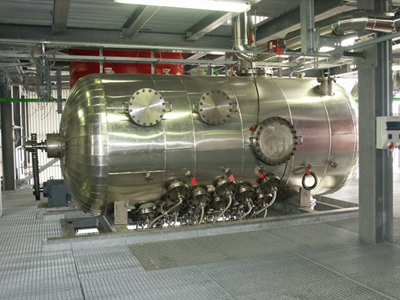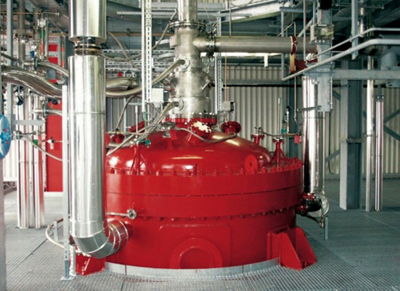The technologies that we present and deliver to the European market are based on thermal disintegration of materials and wastes; this physical phenomenon is also known as thermal cracking, or more precisely gasification of materials. These technologies enable a much higher energy utilization of the following: black coal and lignite, sorted wastes, biomass, waste sludge (from water treatment plants, chemical plants and compounds), residual oil wastes, oil-based products (tyres, plastics), etc.
They represent a progressive method of acquiring energy in an environmentally friendly way, while simultaneously liquidating many wastes that are difficult to dispose of (with an increased or high volume of harmful substances). The most important feature of these technologies is the fact that no materials or wastes are incinerated!!! This is one of the most important facts and one of the primary benefits of these technologies. There is no rapid oxidation (incineration) of the processed materials, from which electric power and heat is produced.
Another great benefit of these technologies rests in a continuous production of energy, because the production does not uncontrollably drop due to windlessness or clouds in case of sun or wind power generating, where these natural circumstances reduce or eliminate production of energy from the sun or the wind.
Thus, as a contrast to renewable sources of energy (hereinafter RSE), our technologies achieve greater efficiency, work continuously and their building requires lower acquisition and running costs.
Production of electric power and heat from organic wastes, woodchips, hay, sewage, manure and other forms of biomass represents a separate issue. In many countries, this technology is defined as production of energy from RSE, where a higher efficiency is achieved at lower acquisition and running costs in comparison with classic biomass processing or biogas producing technologies.
Production of energies with our technologies excels in a lower or zero amount of produced emissions and air-polluting substances in comparison with biomass and waste incineration. The composition and the amount of the processed products depend on the alternative gasified substance (material), the speed of heating, temperature and degassing of the input material (delay-period in the reactor, temperature and pressure). reaktoru, temperatura i pritisak).

